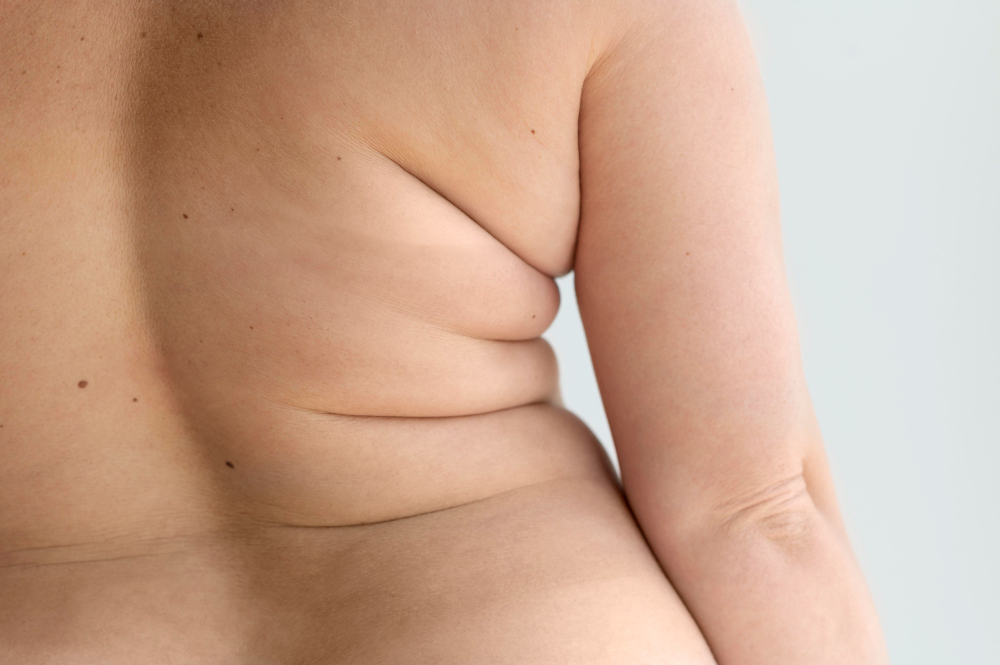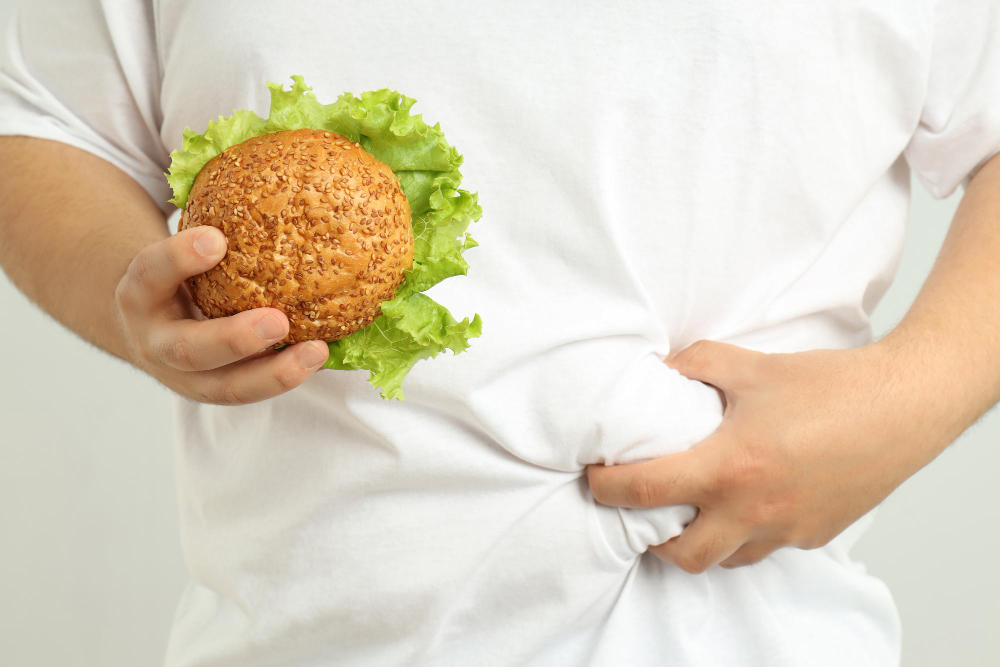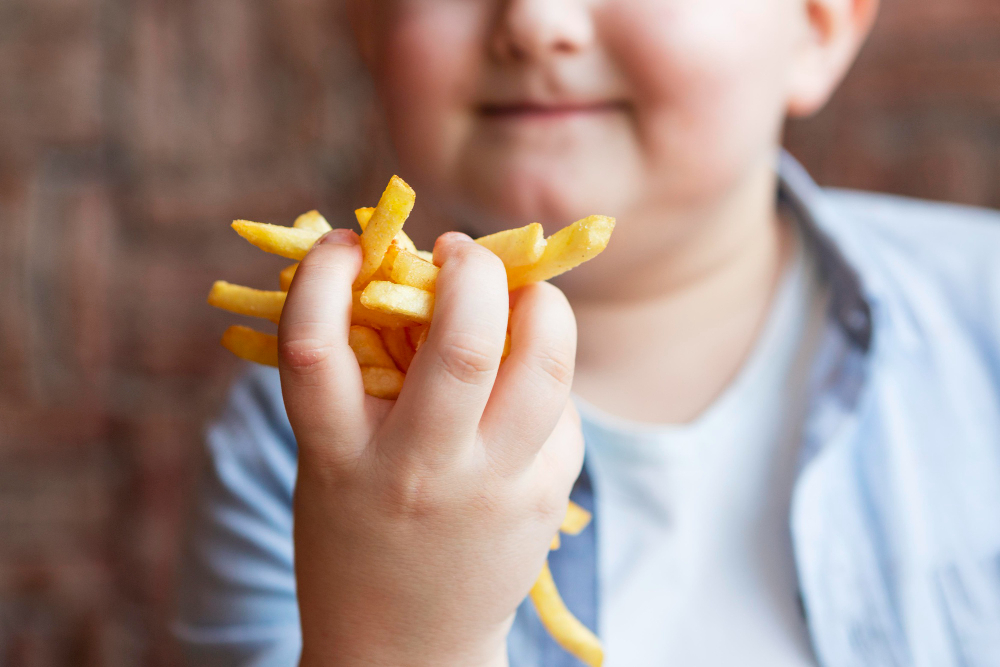CONTACT US: 0919 058 5858 | 02 899 51920
CONTACT US:
0919 058 5858 | 02 899 51920
In Filipino society, a chubby child is often seen as a sign of being well-fed, cared for, and healthy. On the other hand, being thin is usually associated with a lack of nourishment, sickness, or even poverty. Plump kids are frequently showered with affection – their round cheeks are pinched, their appetites indulged, and they are given extra servings – all in the name of being “cute”. Many parents and relatives believe these little ones will naturally shed their baby fat as they grow, viewing their plumpness as a harmless sign of health and charm.
We often witness this affectionate view of childhood obesity reflected in the media. Take, for instance, that adorable young boy who appeared on a popular local noontime show a few years back. The hosts would often gush over him for being “adorably fat,” and his playful personality and cuddly look quickly made him a crowd favorite.
But while cuteness often steals the spotlight, health experts warn that being overweight in childhood isn’t something to take lightly. What’s seen as “baby fat” today could have long-term health implications tomorrow.
UNICEF reported that almost 1 in 10 Filipino children, aged 5-10 years old and 10-19 years old, are classified as overweight. With the rising cases of obesity in the country, isn’t it about time that we stop brushing off childhood obesity as something harmless or adorable — and start recognizing it as a health issue that needs our attention?

Real-Life Story:
Eight-year-old Anton was adored for being fat. However, when he began playing basketball, he often wheezed and struggled to keep up. His parents thought it was just “normal hingal” from playing too hard. A check-up later revealed he had early asthma made worse by his weight.
Facts:
According to the Mayo Clinic, excess weight in childhood can set kids on a path toward serious health conditions such as Type 2 diabetes, high cholesterol, high blood pressure, joint pain, breathing conditions, and other health issues.
A study also notes that being overweight is a major risk factor for pediatric asthma, as excess weight can make it harder for the lungs to expand and can trigger airway inflammation. This means that everyday activities — from playing sports to simply climbing stairs — can become a struggle.
But the risks go beyond physical health. Childhood obesity can also take a toll on mental and emotional well-being. Children who are overweight may get teased or bullied by peers and struggle with low self-esteem. Over time, these experiences can lead to social isolation, anxiety, or even depression.

Real-Life Story:
When Bea was little, she was always described as “malusog”. Relatives reassured her mom, “Don’t worry, paglaki ni Bea, mawawala din ‘yang baby fat niya.” But by the time Bea turned 14, she was still overweight and started feeling self-conscious at school. A family friend commented that if her weight had been managed earlier, her teenage years could have been much easier.
Facts:
Studies show that children who don’t lose excess weight are more likely to carry obesity into adulthood, increasing their risk for chronic illnesses.
Children don’t simply “grow out of it” — they often “grow with it”.

Real-Life Story:
Julian, a cheerful preschooler, always looked forward to snack time after school. His lola loved spoiling him with merienda — cookies, ice cream, chips, chocolates, flavored juices, and soft drinks. But during a recent wellness checkup, the pediatrician told his mom that Julian was already overweight for his age, and he advised the family to swap out the sugary treats for healthier snacks.
Facts:
Studies show that snacks help growing children receive a steady supply of energy and boost nutrition. However, Healthine reminds parents that many packaged snacks that can be bought in the market are often full of added sugars and artificial ingredients.
Snacks themselves aren’t the real problem — it’s what kind of snacks kids eat. Chips, cookies, and sugary drinks pile on calories fast. But healthy options like fruits, veggies, or yogurt in proper portions can actually help kids stay satisfied without overeating at mealtime.

Real-Life Story:
Michael’s relatives always said, “Malaki lang ’yan kasi big-boned.” But at age 11, his blood tests revealed borderline high blood sugar. The doctor explained that it wasn’t his bones making him big — it was his eating habits and lack of activity. Shocked, his parents decided to cook healthier meals at home and encouraged family walks after dinner, small changes that slowly helped Michael lose weight.
Facts:
A clinical study concludes that there is no real link between obesity and having larger bones. While bone size can vary from child to child, research shows that excess weight comes from fat, not from having “big bones.”
Calling a child “big-boned” doesn’t explain obesity — it excuses it.

Real-Life Story:
When 10-year-old Len-Len gained a lot of weight, her parents got concerned and decided to put her on a “no rice at night” diet. At first, she lost a little weight, but soon Len-Len became cranky and got tired easily. To cope, Len-Len started overeating during lunch and doubling her snacks after school. Instead of helping, the diet made her eating habits worse and left her feeling frustrated.
It wasn’t until the pediatrician said, “Hindi solusyon gutumin ang bata, dapat turuan siyang kumain ng tama.” The doctor also recommended more active playtime. Following the advice, Len-Len’s parents shifted to balanced meals and daily activities like walking and biking. Before long, Len-Len was more energetic, and she slowly realized that eating in moderation was much better than feeling deprived.
Facts:
Putting kids on a strict diet or making them skip meals is not the answer to losing weight. It can do more harm than good, affecting their growth, mood, and overall health. What children need more is balance – learning how to enjoy healthier meals, practicing portion control, and avoiding too many salty and sugary treats.

Secure a family health plan.
Having a family health insurance plan gives you access to pediatric care, enabling you to monitor your child’s growth, catch health concerns early, and get professional guidance.
In Filipino culture, it’s so easy to equate overweight kids with being “adorable” and “cute”. But as the real-life stories and facts show, childhood obesity is not a passing phase that kids outgrow. It can have serious, long-term effects on both physical and mental well-being. What many call “baby fat” may actually be the start of health struggles that can follow a child into adulthood.
Parents and families play a significant role in shaping healthier habits early on. By offering balanced meals, encouraging active play, and modeling positive behaviors, we can give children the best chance to grow strong, confident, and healthy.

Easy access health plan options for the Filipino community.
We know finding the right healthcare plan can be a complex and confusing task.
Our health plan specialists are always here to help 24/7.
Got more questions?